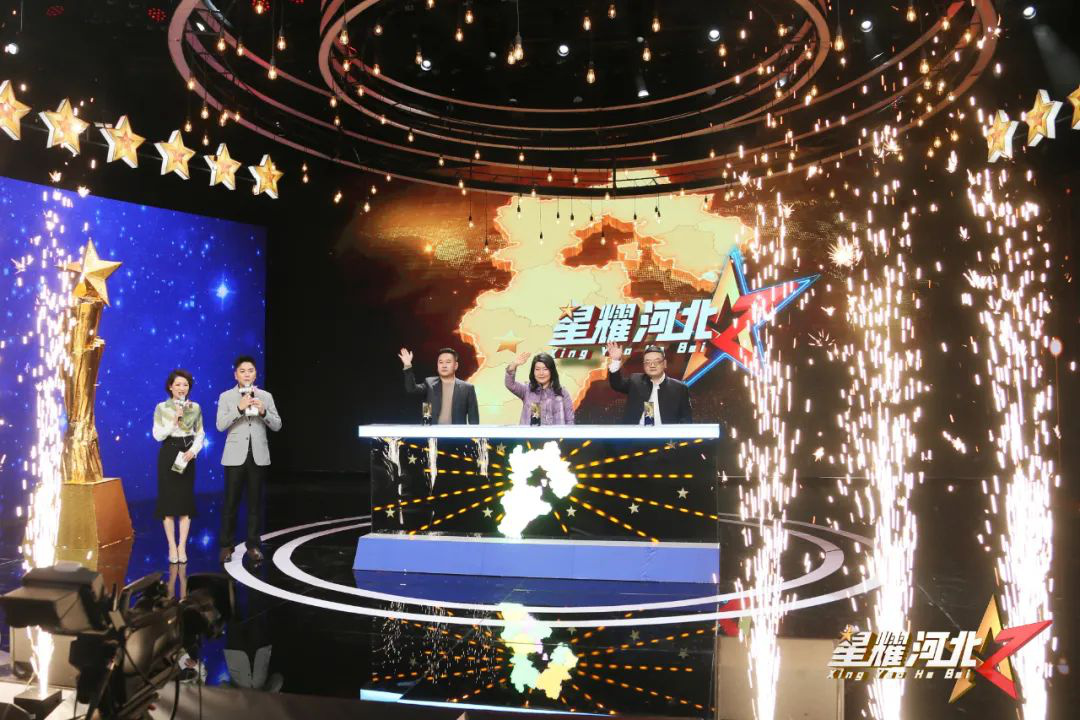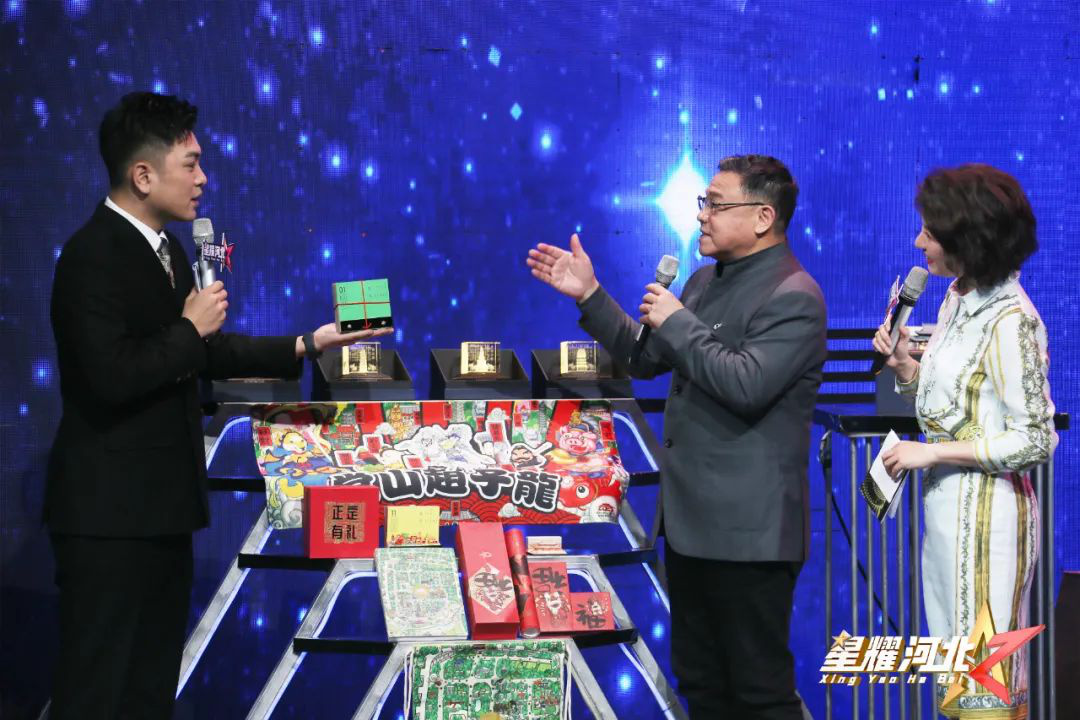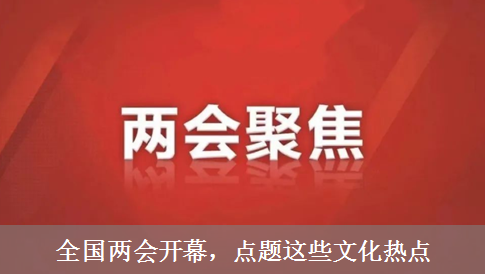Economic Observer reporter Ren Xiaoning Intern reporter Tao Siyu Tan Yuqing
A regional race on the big model has begun.
"More than 80 large models have been released to the public, of which Beijing accounts for about half," Jiang Guangzhi, Party Secretary and Director of Beijing Economic and Information Technology Bureau, said in a recent media interview.
According to the incomplete statistics of the reporter of Economic Observer, in the new round of generative AI upsurge, there have been 106 large models in China, of which the number of large model companies and the number of R&D in Beijing both occupy the "C position", with as many as 54; Shanghai has accumulated advantages in AI computing power; Shenzhen, Guangzhou, Hangzhou, Chengdu and other cities also have a number of large model companies.
On April 28th this year, the the Political Bureau of the Communist Party of China (CPC) Central Committee Conference proposed that we should attach importance to the development of general artificial intelligence, create an innovative ecology, and pay attention to preventing risks. The first meeting of the 20th Central Financial and Economic Committee held on May 5th pointed out that it is necessary to grasp the wave of new scientific and technological revolution such as artificial intelligence. Since then, large-scale model support policies have been launched all over the country. Seize a new round of AI highlands, and major cities are in action.
At present, large models in various places are still in internal testing and are not open to the public. The development of large-scale model is still at the beginning of chaos, and it remains to be seen who will win and become the real "capital of large models".
Jiang Guangzhi’s words are no exaggeration. According to the incomplete statistics of Economic Observer, as of July 13th, there were 54 large model companies in Beijing.
Zhongguancun is the core gathering place of Beijing Big Model Company. When the reporter of Economic Observer visited Wudaokou, there were nearly 10 large-scale model start-up companies within 3 kilometers of Fiona Fang, all of which were outstanding among the large-scale model companies in China.
Outside the south gate of Tsinghua University in Wudaokou, the 3rd floor of Sohu Network Building is a light year away from Wang Huiwen’s founding. This company was founded just four months ago and was acquired by Meituan at a price of 2.065 billion yuan. Opposite Sohu Building is Zhiyuan Building, in which Beijing Zhiyuan Artificial Intelligence Research Institute is located. The dean is Huang Tiejun, director of the Department of Computer Science and Technology of Peking University, which is one of the backbone of the academic school. As early as 2021, Zhiyuan launched the first super-large-scale pre-training model "Enlightenment 2.0" in China, with a parameter of 1.75 trillion.
Zhiyuan Building, 800 meters to the south, was founded by Wang Xiaochuan. On July 11th, Baichuan Intelligent released "Baichuan-13B-Base", a universal large language model with 13 billion parameters.
On Danling Street, 3 kilometers away from Zhiyuan Building, MiniMax Beijing team works here. This is the largest model startup company with the highest valuation in China. After the latest round of financing in June, it was valued at 1.2 billion US dollars. One kilometer away from Danling Street is the office of Xianyuan Technology, which was founded by Zhou Bowen, the former head of AI in JD.COM.
Located near Zhongguancun, there is also Kai-fu Lee’s big model new company "010,000 things", which was just established on July 3rd. At present, the team has dozens of core members.
Li Zhifei, the founder of Mobvoi, whose company is also in Haidian, has launched a large model product "Sequence Monkey". There are also large-scale model products launched by Internet manufacturers nearby. For example, ByteDance, located in Zhichun Road, released the large-scale model service platform "Volcano Ark" on June 28th.
If the scope of Zhongguancun is expanded to 10 kilometers in Fiona Fang, there will be more large model companies. Zhongguancun, 10 kilometers to the north, is Houchang Village, a gathering place for big Internet companies. In March of this year, Baidu released a large model of Wenxin in Baidu Science Park, which is the first large model released by a large Internet company in China.
The same big factory that released the big model in Beijing, as well as 360 in Wangjing, released the "big model of wisdom and brain" this year. JD.COM, located in Yizhuang, released the "Big Model of Speech and Rhinoceros".
There are also a number of medium-sized companies in Beijing that have also released large models, such as "Tiangong" by Kunlun Wanwei, "Knowing the Chart" by Zhihu, "Zi Yue" by Netease, and "Style Theory" by the fourth paradigm …
According to IDC’s Evaluation Report on the Development of Artificial Intelligence Computing Power in China IDC《2022-2023, Beijing ranked first in the list of artificial intelligence cities in China in 2022. According to "AIGC Employment Trends Big Data Report 2023" released by the Hunting Research Institute, among the TOP10 cities in AIGC in the past year, Beijing has the most jobs, accounting for 22.21%.
In terms of AI policy support, Beijing is making efforts. In May, the Beijing Municipal Government issued three AI-related documents in 12 days. On May 19th, the Beijing General Artificial Intelligence Industry Innovation Partnership Program was released; On May 30th, the "Several Measures for Promoting the Innovation and Development of General Artificial Intelligence in Beijing" was issued; On May 30th, the "Implementation Plan for Accelerating the Construction of Artificial Intelligence Innovation Sources with Global Influence in Beijing (2023-2025)" was issued.
Jiang Guangzhi also mentioned that Beijing Economic and Information Bureau will launch the results of large-scale model application in a quarterly iteration, forming a number of typical cases of deep integration of artificial intelligence and economic and social development, and is planning to support model partners and model observers through vouchers, etc. The first phase is expected to support vouchers of not less than 40 million yuan and subsidize model partner enterprises.
On July 8 this year, at the closing ceremony of the 2023 World Artificial Intelligence Conference, "Several Measures to Promote the Innovation and Development of Artificial Intelligence Large Models in Shanghai" was announced, and the "Model Capital" initiative was released to establish an open-source ecological industrial cluster of artificial intelligence in Shanghai and build an AI "Model Capital".
Focusing on the four directions of innovation ability, innovation elements, innovation application and innovation environment, Shanghai will focus on building three plans and five platforms. The three plans are: large model innovation support plan, intelligent computing power acceleration plan and demonstration application promotion plan.
However, compared with the number of large model enterprises in Beijing, Shanghai is slightly inferior. According to the incomplete statistics of the Economic Observer, as of July 13th, there were 12 large models in Shanghai, namely: Shanghai-based MiniMax, MOSS of Fudan University, Shangtang Technology’s Rixin, Cao Zhi, who is philosophical about data, WAI of Weimeng, Infinite Search of Xinghuan Technology, Le Yan of Le Yan Technology, Uni-talk of Medical Computing Network, Scholar General Large Model System of Shanghai AI Laboratory and TIG of Hubo Technology.
The leaders of Shanghai Big Model are Shang Tang and Fudan University. In July this year, the Shang Tang Nikita model was updated to version 2.0, and a small model was also launched on the basis of the large model. MOSS of Fudan University was launched in February this year. Qiu Xipeng, head of MOSS system, said that MOSS has surpassed ChatGPT in Chinese.
Although the number of large models is not as large as that in Beijing, Shanghai is far ahead in terms of computing power and chips that every large model company cannot do without.
In the first half of this year, NVIDIA’s share price soared, because their GPUs can provide computing power for large models. Due to the limited shipment of GPUs, the market was in short supply. In Shanghai, there are also a number of domestic GPU companies.
Minhang District and Shanghai Pilot Free Trade Zone are important cities of Shanghai chip companies. On the Chen-Hang Highway, there are domestic leading chip companies that provide general-purpose GPU chips for large-scale model computing, such as Biqi Technology and Tianzhi Zhixin. Shanghai Pilot Free Trade Zone is full of semiconductor companies with different nodes and different research and development types from chip design to generation, such as Xinlu Technology, Sunview Core Design and WorldCom Microelectronics.
Zhangjiang is also a gathering place for Shanghai chip companies. At this year’s World Artificial Intelligence Conference, chip companies in Zhangjiang released new chip products, including "Xisi N100 Artificial Intelligence Reasoning GPU" integrated by Mu Xi, "Hanbo Second Generation Full-featured GPU Chip" by Hanbo Semiconductor, and "Jisi 2.0" by Suiyuan Technology.
At the same time, there are many foreign chip companies in Shanghai, such as Zizhu Science Park in Minhang District, China company with semiconductor chip giant Intel, NVIDIA, which defines GPU, and its China company are also in Shanghai.
In addition to large models, Shanghai is also the birthplace of the last wave of "AI Four Little Dragons" Shangtang Technology and Yitu Technology. In 2019, Shanghai Pudong New Area became the first pilot area of artificial intelligence in China. At present, 13 universities and 5 research institutes, including Shanghai Jiaotong University, Fudan University, Tongji University and Shangda University, have set up artificial intelligence related disciplines.
In terms of AI support policy, Shanghai is running very fast all over the country. In September last year, Shanghai issued the first AI provincial regulation in China, "Regulations of Shanghai Municipality on Promoting the Development of Artificial Intelligence Industry", which mentioned that Shanghai promoted the circulation of algorithmic model transactions, and the Shanghai Economic Information Department, together with relevant departments, guided industry organizations to formulate the recommendation catalogue of artificial intelligence algorithmic models, which reduced the transaction risk of algorithmic models and improved the transaction efficiency of algorithmic models. The "Regulations" pointed out that Shanghai supports relevant entities to carry out high-performance smart chip design innovation based on advanced architecture, develop cloud chips and cloud smart servers, lay out brain-like chips, strengthen software and hardware collaborative adaptation, support joint construction of R&D testing and application platforms, strengthen technical collaboration and chip architecture interconnection, enhance the competitiveness of smart chip products and technologies, and cultivate an application ecosystem of smart chips.
In the administrative service hall of Shenzhen Longgang Bureau of Politics and Statistics, the big model has been applied to the government consultation service system, and the big model named "Tianshu" of Yuntian Lifei Technology Co., Ltd. provides support behind it. This AI company landed in science and technology innovation board on April 4th this year, and it is "the first stock of artificial intelligence in Shenzhen", with a current market value of 22.9 billion yuan.
Another Shenzhen-based natural language processing technology, Chase One Technology, also released its self-developed large model "Bowen" this year, which landed in vertical scenes such as finance and government affairs.
In addition, Shenzhen also has large-scale scientific research strength. In Futian, Shenzhen, Shen Xiangyang, former global executive vice president of Microsoft and head of AI and technology R&D system, led the IDEA Research Institute, which launched the series of open source general model "Jiang Ziya" and opened the 99th general model "Jiang Ziya General Model v1". Jiang Ziya model has 13 billion parameters, which can be pre-trained in the order of 100 billion token. At the same time, the Chinese University of Hong Kong (Shenzhen) and Shenzhen Big Data Research Institute trained and opened a large medical model-Huatuo GPT (Huatuo GPT), so that the language model has the same diagnostic ability and the ability to provide useful information as a doctor.
"Beijing is doing 0 to 1, Shanghai is doing 1 to 10, and Shenzhen is doing 10 to 100." A researcher who focuses on artificial intelligence enterprises in Shenzhen described Shenzhen as different from Beijing and Shanghai in the AI field. In his view, the AI company in Shenzhen is good at the top AI application, and it may take six months to one year before the Shenzhen company can show its talents.
Not long ago, the above-mentioned people made a thorough investigation of local big model companies. The latest data is that there are 11 big model companies and institutions in Shenzhen, including both general models and industry models.
Of course, there is no doubt that the leading company of Shenzhen AI is Huawei. On the afternoon of July 7, Huawei released Pangu Big Model 3.0, and Huawei also provided computing power. On July 6, Huawei’s computing power solution Shengteng AI Cluster was fully upgraded, and the cluster scale was expanded from the initial 4,000-card cluster to 16,000 cards, making it the first Wanka AI cluster in the industry.
On May 31, Shenzhen issued the Action Plan for Accelerating the High-quality Development and High-level Application of Artificial Intelligence in Shenzhen (2023-2024), simultaneously released the first batch of "City +AI" application scenarios, and set up an artificial intelligence fund group with a scale of 100 billion yuan as a whole, with the most sufficient computing power, the greatest policy support, the best industrial ecology, the best talent environment and the richest scenario applications.
The above-mentioned researchers told the Economic Observer that in the early stage of the development of the big model, a city with many universities like Beijing had an advantage because of its high threshold for starting a business, which required top talents and partial basic research. Shenzhen’s manufacturing industry is developed and will be strong in application and industrialization in the future.
On July 4th, the White Paper on the Development of Artificial Intelligence Industry in Shenzhen (2023) released by the research team of Shenzhen Artificial Intelligence Industry Association showed that in 2022, the scale of artificial intelligence industry in Shenzhen reached 248.8 billion yuan.
Among them, the scale of the core industry of artificial intelligence in Shenzhen reached 30.8 billion yuan, a year-on-year increase of 52.48%; In terms of the number of enterprises, in 2022, the number of artificial intelligence enterprises in Shenzhen reached 1920; In terms of industrial chain distribution, in 2022, the basic layer of artificial intelligence in Shenzhen only accounted for 8.13% of the total number of enterprises, the technical layer accounted for 17.29% of the total number of enterprises, and the application layer accounted for 74.58% of the total number of enterprises; In terms of regional distribution, in 2022, artificial intelligence enterprises in Shenzhen were mainly concentrated in Nanshan and Baoan districts, accounting for 58.1% of the total. Among them, Nanshan District accounts for 36.8% and Baoan District accounts for 21.3%.
According to the incomplete statistics of the Economic Observer, there are eight big models in Hangzhou, the largest of which is the Tongyi big model family in Alibaba Cloud, and there are also the West Lake in the heart of the West Lake, the phoenix tree of Yushi Technology, the Light-GPT of Hang Seng Electronics, the Zhen Yi of Ant Group, the Linxi of Xinhua Sanh3c, the really intelligent Tas and the jade words of Netease Fuxi.
The leading AI player in Hangzhou is Alibaba. At present, there are three models in Alibaba Cloud Tongyi Big Model Family, including Tongyi Thousand Questions, Tongyi Listening and Understanding and Tongyi Wanxiang. Alibaba’s Ant Group also released a large model of Zhen Yi.
Another AI force in Hangzhou comes from Netease. At the 2023 World Artificial Intelligence Conference, many AI model products of Netease Fuxi made their debut, including "Yuyan" and "Danqing".
Beside the West Lake in Zhejiang Province, there is also a large-scale model startup company, Xihu Xinchen. This company cooperated with scientific research institutions such as West Lake University, integrated the power of academic schools and released a large-scale model of the West Lake. Since the beginning of this year, West Lake Xinchen has received investment from Baidu and Tom Cat, and its latest round of financing took place in July, completing strategic financing of over 100 million yuan.
According to a series of "Evaluation Report on the Development of Artificial Intelligence Computing Power in China" jointly issued by IDC and Inspur Information, in recent five years, Hangzhou has been ranked among the top three computing cities, competing with Beijing and Shenzhen, showing its strong competitiveness.
In terms of computing power carrier, Hangzhou has a national new generation of artificial intelligence open innovation platform for Alibaba Cloud City Brain and Hikvision Video Perception, as well as a national innovation platform for brain-computer integration frontier science center, artificial intelligence collaborative innovation center and national data intelligence technology innovation center.
At the same time, Hangzhou’s technology companies have also found a ready-made testing ground: e-commerce industry. As the capital of e-commerce, the frequent updating of content production needs has given birth to the market demand of e-commerce for AIGC, which has become the pillar project of AIGC in Hangzhou market. At present, the AIGC service of Hangzhou science and technology enterprises has been able to quickly build e-commerce scenes. In addition to marketing texts, product introductions and picture materials needed by businesses can be automatically generated through AIGC. AI painting, which was popular last year, and the generation of AI content already used by some new media, and related products of Hangzhou enterprises have also been launched.
In terms of policy, at the end of last year, Hangzhou released the "List of Artificial Intelligence Application Scenarios for the Third Batch of Key Construction in Hangzhou in 2022", covering smart cities, smart manufacturing, smart medical care, smart transportation, smart finance and other fields. A total of 46 key construction artificial intelligence application scenarios were selected. In June this year, Hangzhou Economic and Information Bureau drafted the "Implementation Opinions on Accelerating the Innovation and Development of Artificial Intelligence Industry (Draft for Comment)", which is now open to the public for comments.
At present, Zhijiang Laboratory, Ali Dharma Institute, Zhejiang University and other scientific research institutions are all increasing their research in the field of AIGC.
According to the incomplete statistics of Economic Observer, there are four big models in Guangzhou, namely, Yuncong Technology’s Calm, South China University of Technology’s College of Future Technology’s Bian Que and Lingxin, SocialGPT for storytelling, and Celine Technology’s Darwin.
In July 2021, Guangzhou Municipal Bureau of Science and Technology issued the Three-year Action Plan for High-quality Development of Guangzhou Artificial Intelligence Industry Chain (2021-2023) (draft for comments), proposing that Guangzhou will focus on building an internationally influential artificial intelligence innovation competition, building 10 artificial intelligence industrial parks, creating 100 typical artificial intelligence application scenarios and cultivating over 1,000 artificial intelligence enterprises.
In September last year, Guangzhou issued the Action Plan for Promoting the Integration and Development of Industrial Chain in innovation chain (2022-2025), pointing out six key actions.
According to incomplete statistics, there are three big models that have been released in Chengdu: XPT, the Xiao model jointly released by Xiaoduo Technology and National Supercomputing Chengdu Center, medGPT released by Medical Union Technology, and workChat Digital Man of Mingtu Technology.
In May of this year, Xiao Model (XPT) was released, which is a vertical model for e-commerce industry based on large language model technology. On May 25th, the Medical Association released the first medical language model in China-MEDGPT, which is dedicated to giving full play to the actual diagnosis and treatment value in real medical scenes and realizing the whole process of intelligent diagnosis and treatment from disease prevention, diagnosis, treatment and rehabilitation. On May 31st, Mingtu Technology officially released Mingtu workChat Digital Man, whose functions include knowledge quiz, AI writing, knowledge collection and auxiliary tools.
In May of this year, "Key Points of Building a Strong Chain of Big Data and Artificial Intelligence (including Vehicle Intelligent Control System) Industry in Chengdu in 2023" was issued, and 17 detailed measures were given to Chengdu’s big data and artificial intelligence (including Vehicle Intelligent Control System) industrial chain development "road map".
The goal of Chengdu is to strive to cultivate 5 national-level "Little Giant" enterprises specializing in artificial intelligence, 1 listed enterprise and 10 regulated enterprises this year, and the scale of artificial intelligence industry will exceed 70 billion yuan.
Chengdu proposes to encourage universities, scientific research institutions and leading enterprises to join forces with computing centers to focus on key industrial fields to incubate original AI big models, and give the builder a computing cost subsidy of up to 5 million yuan per year to reduce the innovation cost of enterprises. A total of no more than 10 million yuan of calculation vouchers will be issued every year to support calculation intermediary service agencies, small and medium-sized scientific and technological enterprises, makers, scientific research institutions and universities to use the calculation resources of the National Supercomputing Chengdu Center and Chengdu Intelligent Computing Center.
Nanjing, located in the Yangtze River Delta region, has also made efforts to develop the AI industry in recent years. According to incomplete statistics, there are three large model companies in Nanjing, namely KidsGPT of king of the children Company, Yuanxiang of Zhizi Engine and Yandi of silicon-based intelligence.
King of the children company’s KidsGPT was launched during the Children’s Play Festival on June 1st, specializing in the vertical field of mother and baby. Yandi Big Model is a multi-modal industry model, which can be used by enterprises to do short video generation, live broadcast generation, movie/TV series generation, and even digital immortality. Zhizi Engine is a multi-modal and large-scale start-up enterprise, which has completed 10 million yuan angel round financing. The core team behind the company is a research group led by Zhiwu Lu, a professor at Gaoyang Artificial Intelligence College of China Renmin University, and its large-scale model product, meta-multiplication image ChatImg, has a parameter of about 15 billion.
In December 2022, Nanjing issued the "Implementation Plan for the Construction of Nanjing National Pilot Area for Innovative Application of Artificial Intelligence", proposing that by 2025, Nanjing will build five artificial intelligence industrial parks with high standards, strive for 1-2 artificial intelligence industrial clusters above the provincial level, and cultivate 100 key artificial intelligence enterprises, with 30 enterprises specializing in new giants and individual champions above the provincial level, and the income of the city’s artificial intelligence core industries exceeding 50 billion yuan.
In the future, Nanjing Artificial Intelligence Computing Center will continue to provide easy-to-use services and products for corporate customers in addition to computing power support, focusing on the core capabilities of artificial intelligence industry development such as data, computing power and algorithms, empowering enterprises and promoting upstream and downstream enterprises of artificial intelligence industry to gather in Nanjing. The center plans to complete the model adaptation verification of core partners in the near future, which will provide a strong basic model support for local enterprises to incubate the big language model of the industry, and build a benchmark demonstration for the transformation of the big industry model into business in Jiangsu.
Other cities that released big models include Tianjin, Hefei, Harbin, Shenyang, Xi ‘an, Changsha, Mianyang and Xiamen.
There are two large model companies in Tianjin: Tianhe Tianyuan Model released by Tianjin Center of National Supercomputing, and Haihe Diligence Model jointly released by Huiyan Technology and Tianjin University.
During the World Artificial Intelligence Conference, the National Supercomputing Tianjin Center released the Tianhe Billion-level Intelligent Computing Open Innovation Platform and the domestic Chinese big model-Tianhe Tianyuan. The National Supercomputer Tianjin Center has collected and sorted out web data, various token source training data, Chinese novel data, ancient prose data, encyclopedia data, news data, and various data sets of Chinese medicine, medicine, consultation, law and other professional fields. The total number of training data sets has reached 350B b.
The representative of AI Company in Hefei, Anhui Province is Iflytek. In May this year, Iflytek released the Spark Cognitive Model. Liu Qingfeng, chairman of Iflytek, said that the current iFLYTEK Spark Cognitive Model has surpassed ChatGPT in three major abilities: text generation, knowledge quiz and mathematical ability.
In Hefei High-tech Zone, an industrial park around the fields of intelligent voice and artificial intelligence has also flourished, which is called "China Sound Valley". More than 1,000 enterprises have settled here, employing more than 50,000 people, forming a 100-billion-level industrial cluster.






















